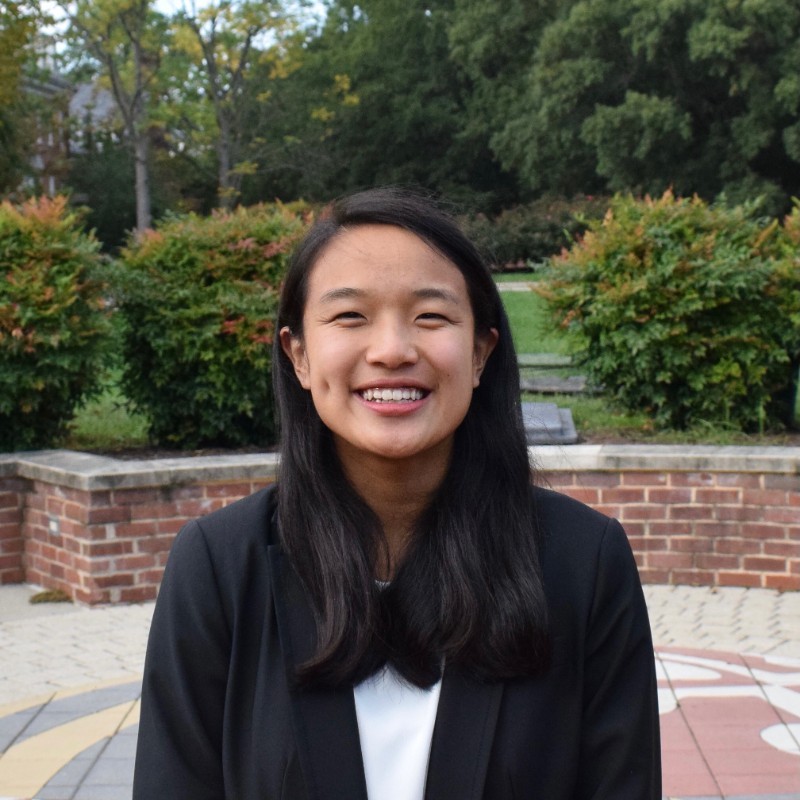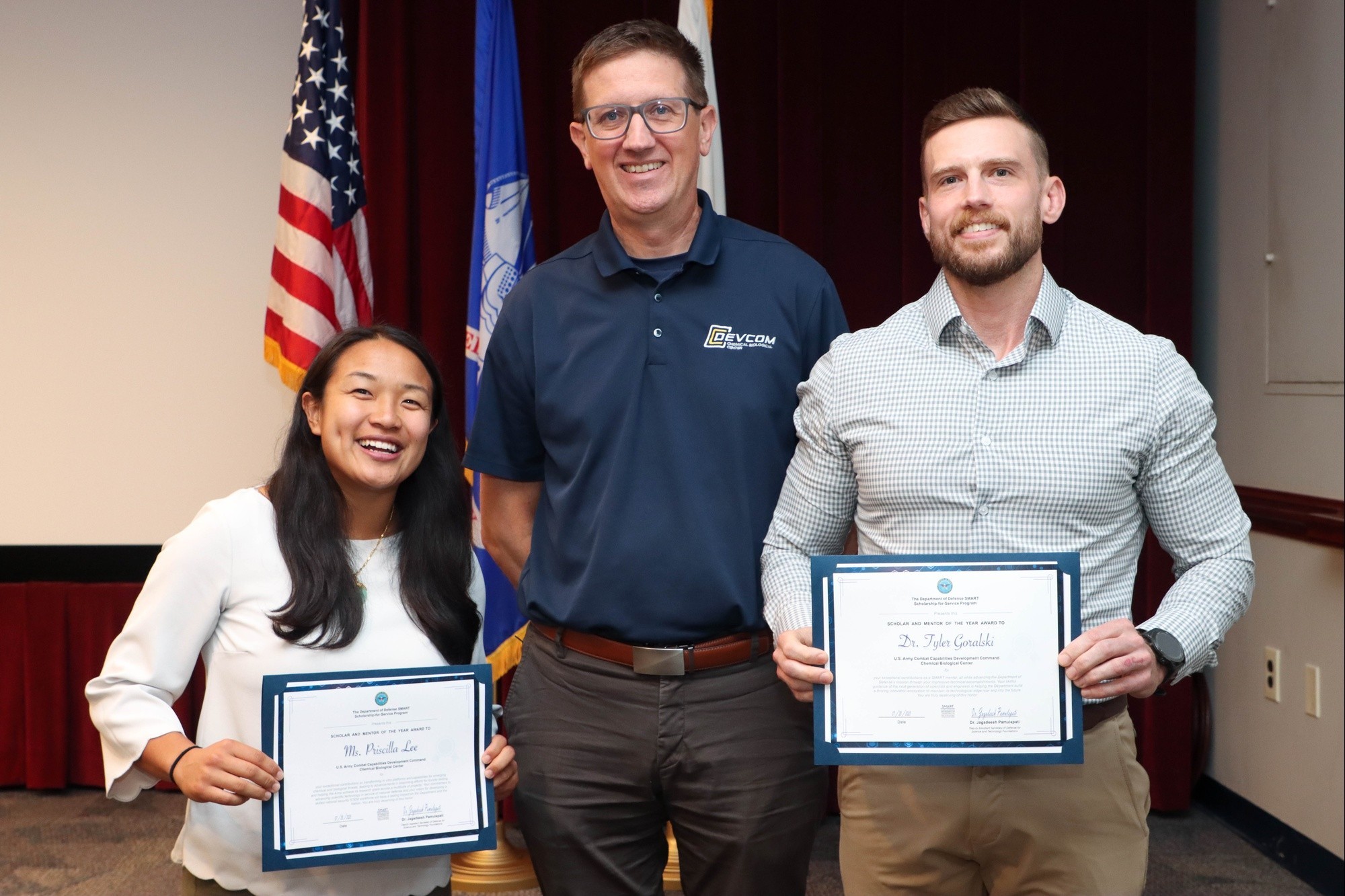Priscilla Lee earns DoD SMART Scholar of the Year
Alumna Priscilla Lee (BIOE B.S. 2021, M.Eng. 2022) has been recognized as a Fiscal Year 2024 SMART Scholar of the Year by the Department of Defense (DoD) Science, Mathematics, and Research for Transformation (SMART) Scholarship-for-Service Program. She shares the award with her longtime mentor, Dr. Tyler Goralski of the U.S. Army Combat Capabilities Development Command (DEVCOM) Chemical Biological Center.
The SMART Scholar and Mentor of the Year Award highlights scholar-mentor pairs who make exceptional contributions to defense-related research. Lee and Goralski were honored for their efforts to advance in vitro platforms that strengthen the nation’s ability to respond to chemical and biological threats. Their work has contributed to new approaches in bioprinting for toxicity testing and has helped shape the Army’s research capabilities, while also supporting a long-term shift toward reducing reliance on animal testing. Her journey in bioengineering began at the University of Maryland, where she spent five years as an undergraduate and master’s student. Despite finishing her degrees during the pandemic, she recalls her UMD years as formative. Under the guidance of Associate Professor Katharina Maisel, she gained hands-on experience developing microfluidic devices, directly laying the groundwork for her later work in organ-on-a-chip platforms. She also credits the Women-in-Engineering Program, led by Dr. Paige Smith, for fostering a supportive community that shaped her academic and professional growth. “College Park is surrounded by government institutions and laboratories that cover a wide range of bioengineering research. Students here are uniquely positioned to explore those opportunities and make connections that can lead to meaningful careers in public service.” Lee says. Lee’s career path has been closely shaped by the SMART Scholarship Program, which supported her undergraduate and graduate studies and provided early exposure to defense research through summer internships. These opportunities helped her translate classroom learning into real-world applications and prepared her for her current role as a civilian researcher for the DoD. As a research bioengineer in the U.S. Army DEVCOM Chemical Biological Center’s (CBC) Molecular Toxicology Branch, Lee develops engineered human-relevant systems designed to improve how scientists study chemical and biological exposures. Her projects include the use of organ-on-a-chip technology, microfluidic devices seeded with human cells that mimic organ function, and bioprinted skin models that can be used to study vesicant exposure. These efforts help generate physiologically relevant data while minimizing animal use in defense research. Alongside her work at DEVCOM CBC, Lee is pursuing graduate studies at Johns Hopkins University, where she focuses on advanced bioprinting techniques for skin tissue modeling. Her research carries direct implications for the safety of U.S. service members and reflects her commitment to improving defense readiness through innovative bioengineering solutions. Looking ahead, Lee hopes to follow in the footsteps of her mentor, Dr. Goralski, by serving as a role model for young researchers. Having benefited from his guidance since her first internship at DEVCOM CBC, she aims to lead by example and foster the same kind of supportive environment for future scientists and engineers.
September 18, 2025 Prev Next |



